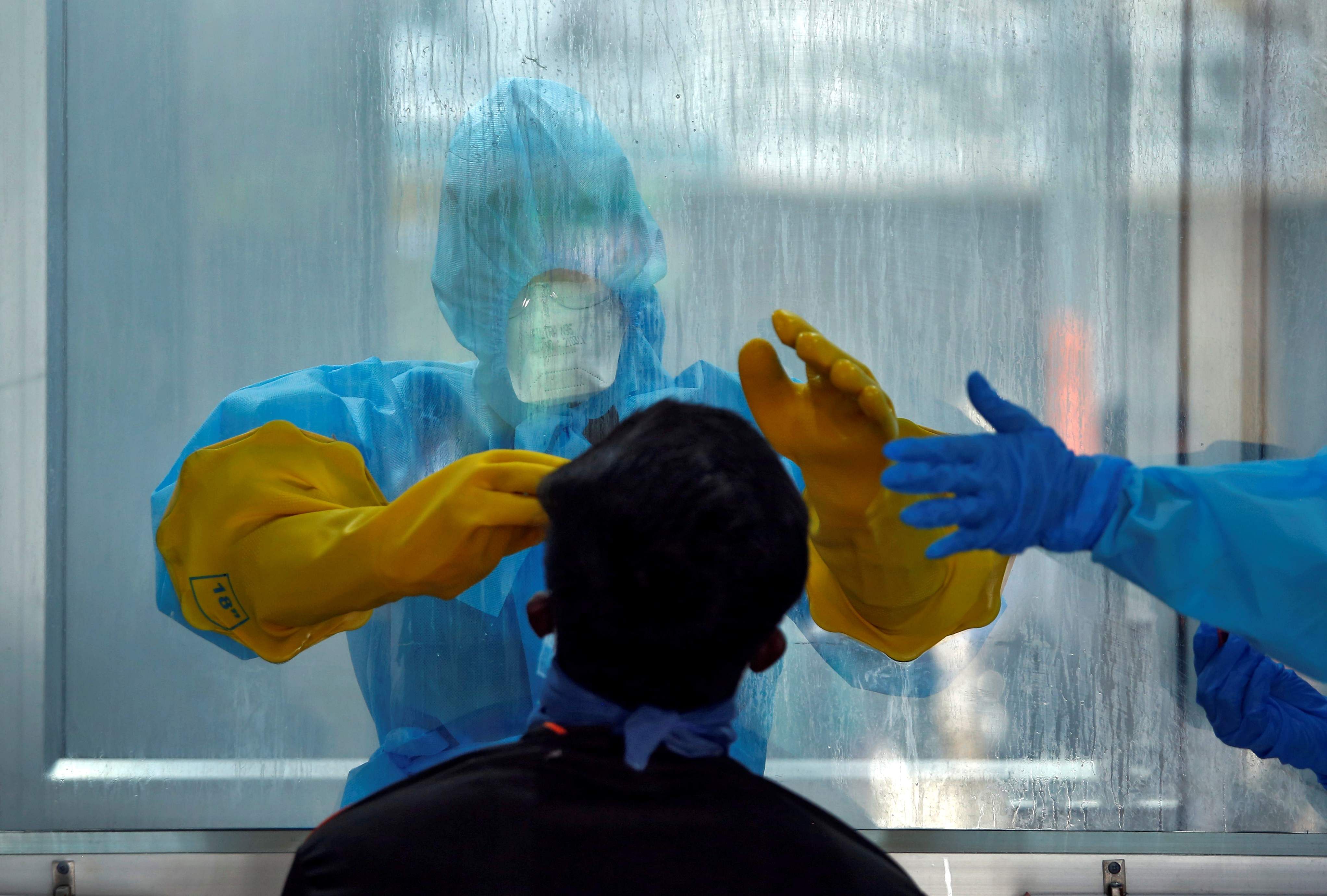
From a strict protocol of testing only symptomatic patients to “aggressive testing” now, Tamil Nadu’s strategy to contain the spread of COVID-19 has undergone a paradigm shift in just a month after the state reported its first coronavirus patient.
The state reported its first COVID-19 patient on March 7 –a 45-year-old man who returned from Oman– but saw an exponential increase in the number of positive cases in just over a month.
On March 30, the state had 67 cases but 13 days down the line, the number stood at 1,075 on April 12.
Though the majority of the positive patients belong to one cluster, attendees of the Tabliqi Jamaat religious congregation in Delhi that happened in March and their contacts, the state with a population of over 7 crores has realized the need to go for aggressive testing to stop the coronavirus from spreading, albeit a little late.
Experts still feel the number of samples being tested by Tamil Nadu is far less than the likes of Kerala, Maharashtra and Delhi – the last two also have over 1,000 positive patients each. The state has been under attack from various quarters for “not testing enough” and being “very stingy” in parting with information about COVID-19 patients.
Doctors say “aggressive testing” is a welcome move as the strategy would help the state identify the maximum number of people within containment zones, even those who are asymptomatic and sent their swabs or blood samples for testing.
As of Sunday evening, the state had sent 10,655 samples for testing and 1,207 were under process. But the percentage of positive cases is high at 11 percent which experts point out is due to “sample bias.”
Health Secretary Dr. Beela Rajesh told reporters on Sunday that the aggressive testing strategy would cover primary and secondary contacts of positive patients while assuring that the state had enough stock of RT-PCR test kits though the arrival of serology-based rapid test kits from China are being delayed.
Ramping up testing
A senior official with the Health Department said the aggressive testing strategy would focus more on containment zones without waiting for rapid test kits that deliver results in 30 minutes. The Health Secretary also said the state is in possession of 24,000 RT-PCR test kits and would get another 90,000 soon.
“Our strategy is to ramp up testing using RT-PCR kits. These testing kits are of the gold standard and their results are completely reliable. We will use the RT-PCR test kits to aggressively test primary and secondary contacts. They are being identified. Once the rapid test kits come, we will use them as well. But they are useful largely for screening purposes,” the official told DH.
Dr Ram Gopalkrishnan, Senior Consultant, Infectious Diseases with Apollo Hospitals here, said the government’s strategy was welcome and it would help bring asymptomatic patients also into the ambit. He told DH that rapid test kits are an epidemiological tool that will help gauge the spread of the disease in the community and for targeted testing.
“Maybe, the government first restricted things because of its limitations. We need to look at it from the government’s angle. There was concern about the availability of RT-PCR test kits and they prioritized their target like those who had travel history or with severe acute respiratory infection (SARI). That the testing is progressively expanded now is a welcome step,” he said.
On mass testing, Dr. Gopalkrishnan said it can be considered in selected clusters for contact tracing purposes, and not for the population in general.
Number of samples tested aren’t enough
Dr Sumanth C Raman, a medical doctor by profession and a popular TV face in the state who has been tracking COVID-19 situation in Tamil Nadu, said testing should be ramped up now as people are confined to their homes.
“The lockdown period needs to be used for testing a greater number of people and isolate them and their contacts if they test positive. We don’t know how many people are asymptomatic but still carry the virus and spread it to others. We need to identify the maximum number of people and check the prevalence of the infection,” he said.
On the number of samples tested, he said 10,000 is a “very small number” for a state like Tamil Nadu whereas Kerala, which has just half of its population, has tested a much greater number of samples and people. “Of the 10,000 more than 4,000 people are from one group. The only way is to test, test and test. Hope they translate their words of aggressive testing into action,” he said.
A government doctor said the increase in the number of asymptomatic people testing positive for COVID-19 is a cause of worry. “Unless we test more and more, we won’t be able to contain the spread of COVID-19. Hopefully, the aggressive testing strategy would help the state move towards flattening the curve,” he said.